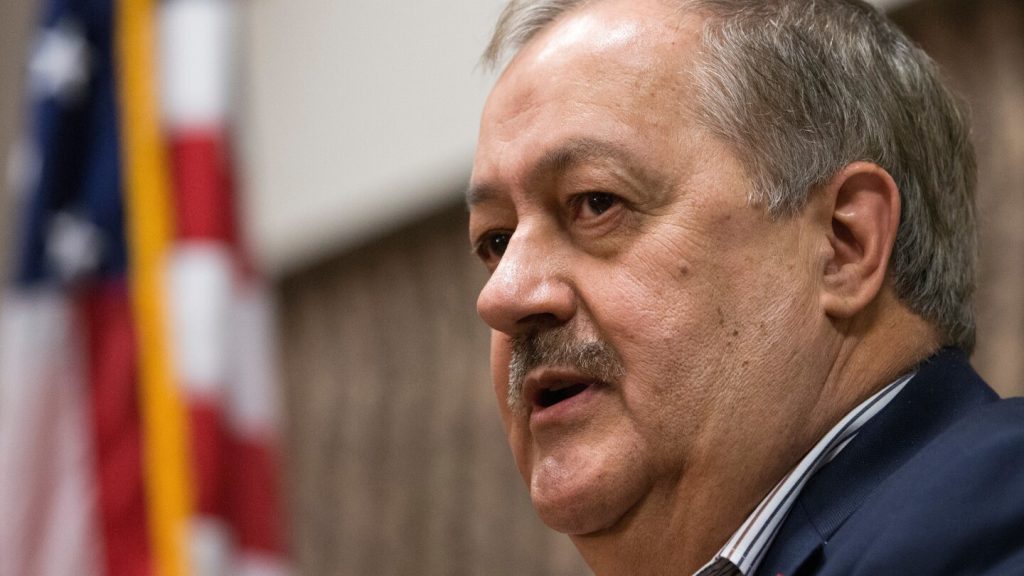Don Blankenship, the former chief executive of Massey Energy, is running for the Senate seat in West Virginia as a Democrat in the upcoming primary election. Despite his history of political losses and a year spent in federal prison for conspiring to violate mine safety laws, Blankenship is confident in his candidacy. The Democratic Party and its union allies are working to prevent Blankenship from securing the nomination, with Senator Joe Manchin endorsing Wheeling Mayor Glenn Elliott as a pro-union alternative. Blankenship’s entry into the race as a Democrat has sparked controversy within the party, with critics questioning his authenticity as a Democrat.
Blankenship claims that he is more aligned with the interests of West Virginians than typical Democrats and believes that his candidacy represents a rejection of unpopular party policies. In addition to Elliott, Marine Corps veteran Zach Shrewsbury is also running in the Democratic primary, while the Republican side sees competition between current Governor Jim Justice and Rep. Alex Mooney. Blankenship must overcome the negative reputation created by his involvement in the 2010 coal mine explosion, for which he was sentenced to a year in prison. The explosion killed 29 men and Blankenship’s actions leading up to the tragedy were heavily scrutinized during his trial.
Throughout his legal battles and failed political endeavors, Blankenship has maintained his belief that he was unfairly targeted by regulators and prosecutors. He has spent significant amounts on lawsuits alleging defamation and character assassination, all of which have been dismissed by the courts, including the U.S. Supreme Court. Despite his attempts to enter politics and influence elections, Blankenship has not been taken seriously by voters in West Virginia. Critics like Shrewsbury argue that Blankenship’s controversial background and actions disqualify him from holding public office, especially considering his role in the tragic mine explosion.
Elliott and Shrewsbury emphasize the importance of investing in green energy technology and worker protection, criticizing laws like “Right to Work” passed by the state’s GOP supermajority. They argue that the state needs leaders who prioritize the well-being of workers over corporate interests. Manchin, who has had a tumultuous relationship with Justice, the frontrunner in the Republican race, shares similar views on the importance of supporting workers and transitioning to a more sustainable economy. Despite the challenges posed by Blankenship’s candidacy, the Democratic Party and its allies are determined to prevent him from becoming the nominee in the upcoming primary election.
For many in West Virginia, Blankenship’s candidacy represents a painful reminder of the tragic events surrounding the 2010 mine explosion. Families of the victims and survivors of the disaster have expressed their disbelief at seeing Blankenship continue to pursue political office, viewing his actions as opportunistic and disrespectful to the memory of those who lost their lives. As the primary election approaches, the political landscape in West Virginia remains contentious, with Blankenship’s candidacy adding a layer of complexity to an already challenging race. Voters will ultimately have to decide whether Blankenship’s controversial past outweighs his proposed policies and vision for the state.


